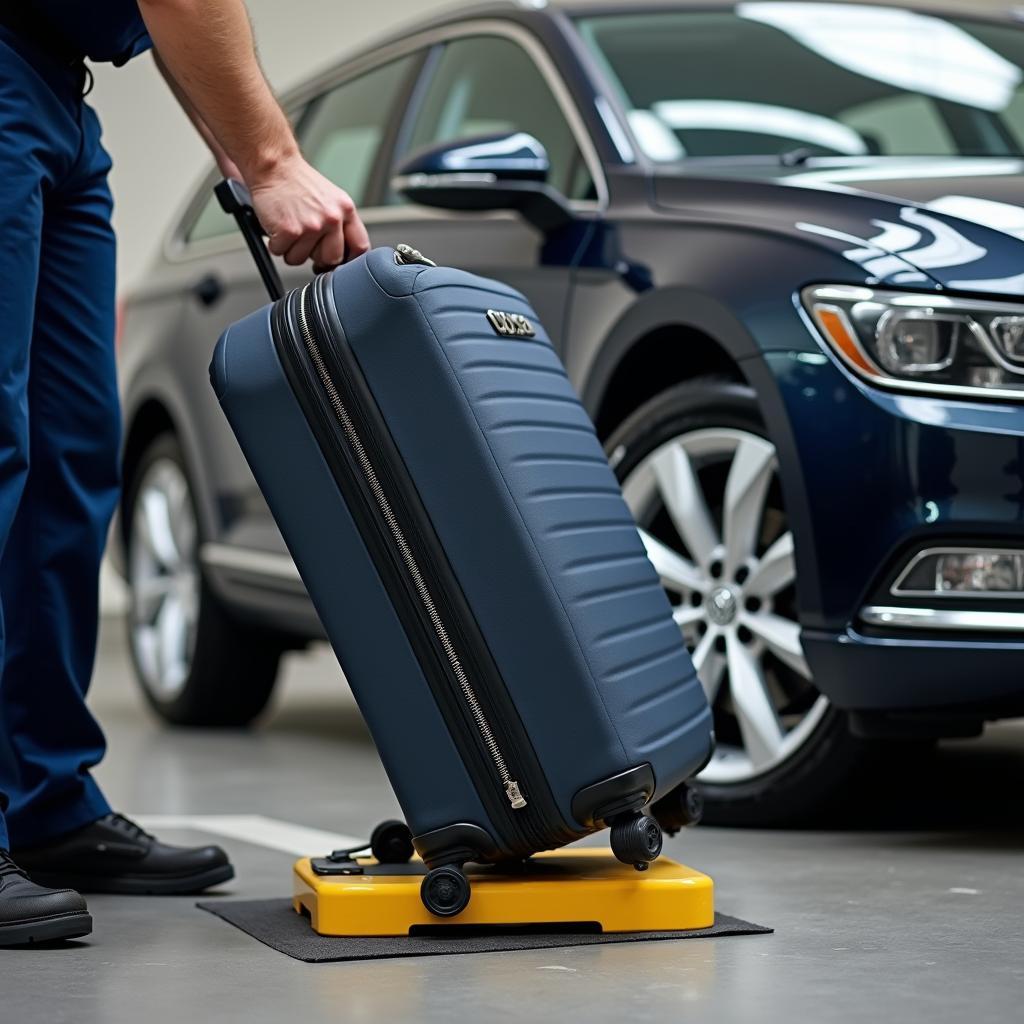When buying a car, especially a used one like the popular VW Passat, you often come across the term ‘Gross Vehicle Weight Rating’ (GVWR). But what exactly does this value mean, and why is it so important? Imagine you’re planning a family road trip in your Passat, loaded with luggage, bikes, and of course, your loved ones. It would be disastrous if your car’s GVWR was exceeded, potentially causing problems on your journey.
What Does ‘VW Passat Gross Vehicle Weight Rating’ Mean?
The Gross Vehicle Weight Rating (GVWR) is the maximum permissible weight of your VW Passat when fully loaded. This includes the weight of the vehicle itself, all passengers, cargo, and a full tank of fuel. This crucial figure is determined by the manufacturer and can typically be found in your owner’s manual or on a sticker located on the driver’s side doorjamb.
Why Is Gross Vehicle Weight Rating Important?
Adhering to the Gross Vehicle Weight Rating is critically important for several reasons:
- Safety: An overloaded vehicle has longer braking distances, poorer handling, and an increased risk of accidents.
- Legal Compliance: Exceeding the GVWR is a traffic violation and can result in fines and penalties.
- Insurance Coverage: In the event of an accident, your insurance coverage could be jeopardized if the vehicle was found to be overloaded.
- Vehicle Longevity: Consistent overloading can lead to damage to tires, brakes, suspension components, and the vehicle’s structure.
 VW Passat loaded with luggage
VW Passat loaded with luggage
How to Calculate Your VW Passat’s Payload
The payload capacity is calculated by subtracting the vehicle’s curb weight from its Gross Vehicle Weight Rating (GVWR). The curb weight, which is the weight of the vehicle with standard equipment and fluids but no passengers or cargo, can also be found in your owner’s manual or on the vehicle sticker. Here’s the formula:
Payload = Gross Vehicle Weight Rating - Curb WeightExample: If a VW Passat has a GVWR of 2,000 kg and a curb weight of 1,500 kg, the available payload is 500 kg.
Tips for Loading Your VW Passat
- Distribute the weight evenly across both axles to avoid unbalanced loading.
- Place heavier items low down and as close to the rear seats as possible.
- Secure your cargo using tie-down straps or a cargo net to prevent shifting during travel.
 Properly packed trunk of a VW Passat
Properly packed trunk of a VW Passat
Conclusion
Your VW Passat’s Gross Vehicle Weight Rating is a critical figure you must consider when loading your vehicle. Paying attention to the GVWR ensures you and your passengers are safe and compliant with regulations while on the road.
Do you have questions about your VW Passat’s GVWR or need help calculating your available payload? Contact us! Our experts at autorepairaid.com are here to assist you with professional advice and support.
Other Interesting Articles About Your VW Passat:
- VW Passat Service Intervals and Costs
- VW Passat Error Codes: Meaning and Solutions
- VW Passat Replacement Parts: OEM vs. Aftermarket
Visit our website at autorepairaid.com to learn more!
